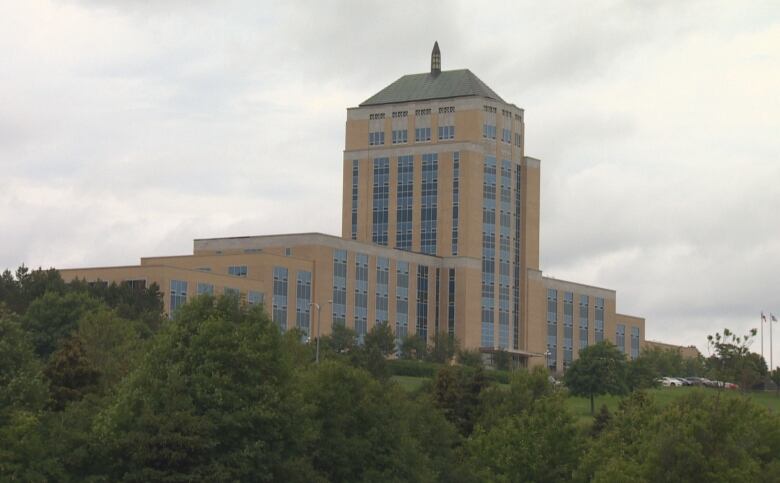'It's certainly better than posting it on Facebook,' says privacy commissioner of COVID-19 reporting tool
COVID map OK too, says Michael Harvey

The government of Newfoundland and Labrador brought online a tool in March for the publicto report others who don't comply withpublic health restrictions.
The province's police forces the Royal Newfoundland Constabulary and the Royal Canadian Mounted Police in late March forgeddedicatedCOVID-19 units to enforce those restrictions.
Michael Harvey, the province's information and privacy commissioner, is on board with the idea, telling CBC Radio's On The Go that extraordinary times call for extraordinary measures.
Harvey says it's necessary for the provincial government to collect personal information at this time.
"I was pretty interested to see that, when the government announced it, and under normal circumstances I would have a number of concerns about these type of forms," Harvey said Wednesday.
But Harvey said there are three things he wants to see happen as government collects personal information online:
- Minimal collection of personal information.
- Collected information kept secure.
- The destruction ofcollected informationonce the pandemic is over.
Harvey said the online reporting tool is a good idea and meets the criteria for necessity.

"People regularly do report on violations of the law, or their perceptions of violations of the law by others, and this form provides a systemized way for them to do that," he said.
"It's certainly better than posting it on Facebook."
Harvey said he had written to the departments of Justice andHealth with his advice, but has not received a reply from either government body as of yet.
"I have pretty good relationships with both of those public bodies, and I'm pretty confident that they would take that advice to heart," Harvey said.
"I trust that they are implementing that form in an appropriate matter and of course we have the ability to, if people have complaints about it, we can investigate."
COVID-19 map
Harvey also agrees with the provincial govenment's online map, which shows a generalized location of where positive cases of COVID-19 have been found. Below the map is a list of large geographic areas, rather than precise locations where people have been infected.
Harvey said the government can release personal health information if it's in the interest ofpublic health.
"In this instance there's public health reasons to disclose it so people need to know," he said.
"I agree with the approach government has taken to release information at a certain level of granularity, to give the public an idea about how much COVID is out there in our community."
However, Harvey said, it's important the government doesn't get too narrow on the information it releases, such as identifying a case in a small community where residents could easily identify who among them has tested positive for the virus.
"Our privacy legislation says don't disclose it if you can figure out who the person is," he said.
"On the other hand, it does say that if it's [in] the public interest to disclose it, then you can do that."
With files from On The Go












_(720p).jpg)


 OFFICIAL HD MUSIC VIDEO.jpg)
.jpg)



























































































